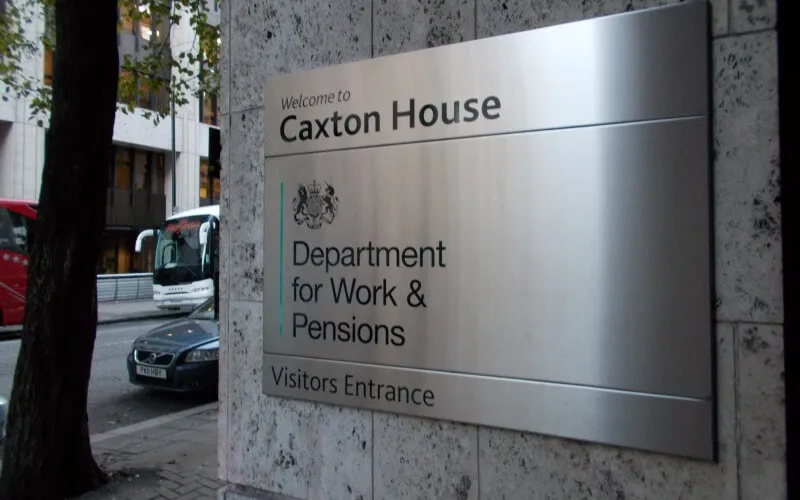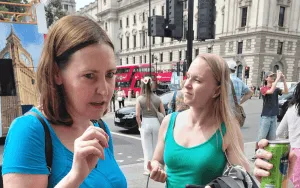A coroner told the Department for Work and Pensions (DWP) to take urgent steps to prevent further deaths after a disabled man with a history of drug misuse died two months after receiving a huge back-payment in disability benefits.
It is only the second prevention of future deaths (PFD) report relating to benefit claimants that has been sent to DWP and has also been published by the chief coroner since 2013.
DWP is refusing to release two other unpublished PFD reports, whose existence has only emerged in the last month (see separate story).
The PFD report was written by a coroner following an inquest last July into the death of 54-year-old Alexander Boamah.
The report appears to show that DWP misled the coroner about an ongoing safeguarding review, something it had also done the previous month at another inquest.
A senior DWP civil servant told the coroner, Dr Richard Brittain, in response to his PFD report that a review of safeguarding policy and guidance was “currently underway” and was “scheduled to provide a revised policy and guidance in September 2019”.
DWP had made a similar claim the previous month to the coroner who heard the inquest into the death of Errol Graham, who had starved to death after DWP wrongly stopped his out-of-work disability benefits.
But Disability News Service (DNS) discovered last month that this safeguarding review was actually “ongoing” and “will continue as a key part of continuous improvement and learning” and will not even produce a final report.
Boamah, from north-west London, had been wrongly found ineligible for personal independence payment (PIP) in late 2016.
But after he was helped by a legal centre to appeal against the decision, he was eventually found to be entitled to the enhanced rate of the PIP daily living component and the standard rate of the mobility component.
Boamah, who had a history of heroin and crack cocaine misuse, was eventually given a payment of more than £11,000 – covering more than two years of benefits that he should have been receiving – in early November 2018.
An inquest last year heard that he died in his own home two months later, on 26 January 2019.
Although a post-mortem was not able to establish how many drugs he had taken, a liver sample showed traces of both cocaine and morphine.
The coroner recorded an open verdict.
The inquest had heard from a psychiatrist from Camden and Islington NHS Foundation Trust, who had been treating Boamah and said he had had no way to express his concerns with DWP or “intervene to address the risks that receipt of this money posed”.
The team at the trust that had been treating Boamah for his addiction had also raised concerns that such a large sum of money could place him at risk, because of the potential for “unrestrained access to illicit drugs”, Dr Brittain said in his PFD report.
Although attempts were made to assess his capacity to manage his finances, Boamah did not attend these planned meetings.
DWP would later say in its response to the PFD report that it understood that – following the arrears payment – Boamah had begun to “disengage from his addiction treatment and increased his reported use of illicit substances”.
The coroner concluded in his PFD report: “There is a real risk that future deaths will occur where large sums of money are received by individuals who are then placed at risk through unrestrained access to illicit substances.
“Whilst it is recognised that individuals should not be deprived of funds owed to them, it does not seem that there is a process whereby concerns about such risks can be raised by treating clinicians to the Department of Work and Pensions.
“A specific concern relates to the potential that individuals, without capacity to manage their finances, may come into receipt of funds which place them at particular risk.”
DWP told Dr Brittain in its response: “The payment to Mr Boamah was made in accordance with the law and DWP’s policy to pay benefit without delay and as soon as reasonably practicable.
“However, the Department recognises that this may not be the most appropriate form of action in some circumstances.
“The review of safeguards for vulnerable claimants when making payments will ensure that the needs of vulnerable claimants such as Mr Boamah are reflected in updated policy and guidance to ensure necessary safeguards are in place.”
It promised to share the updated safeguarding guidance with the coroner “when available”.
But DWP has refused to answer a series of questions about the case, including whether it was aware of Boamah’s drug use before it made the arrears payment; what action it took to safeguard Boamah; and what action it had taken to improve safeguarding since receiving the PFD report.
DWP also refused to say how it justified misleading a second coroner about its safeguarding review.
But the department insisted that it took such cases “extremely seriously and [ensures] they are investigated and any lessons learned”.
A DWP spokesperson said: “This is a tragic and complex case and our sympathies are with those closest to Mr Boamah.”
Camden and Islington NHS Foundation Trust refused to say what communication it had had with DWP since the inquest; what the psychiatrist’s concerns had been; whether it had received any updates from DWP on its safeguarding concerns since last summer; and whether it had any ongoing concerns about the safeguarding issue.
But a spokesperson said: “As clinicians, we would welcome the opportunity to work with the DWP to see what could be done differently to prevent any recurrence of this tragedy.”
She said the trust had not alerted DWP in Boamah’s case because “large back-payments are quite common and often amount to hundreds, sometimes a few thousand pounds”.
She said: “In patients who are actively using drugs we have seen a number of people who have spent these back-payments primarily on drugs.
“However, this was the first death that we have seen in association with this behaviour, underlining the urgent need to work together to review how these payments are made in future to such vulnerable groups.”
She added: “The concern in this and other cases, is that people who are addicted to drugs, but cash-strapped and sometimes with poor budgeting skills, suddenly have access to large sums of money which may then be spent on drugs to the detriment of their health and wellbeing.”
The legal centre that helped Boamah with his appeal, the Mary Ward Legal Centre, declined to comment on the case.
PFD reports are written by coroners who believe – at the end of an inquest – that an individual or organisation should take action to prevent similar deaths happening in the future.
Since 2013, only one other PFD report has been sent to DWP by a coroner – and subsequently published – over concerns about links between the department’s actions and the death of a benefit claimant.
That report was written in January 2014, following the death of Michael O’Sullivan, and was first reported by DNS in September 2015.
But a report by the National Audit Office (NAO) last month into the information held by DWP on “deaths by suicide of benefit claimants” revealed that the department had told the spending watchdog that it had received four PFD reports since 2013.
DNS subsequently submitted a freedom of information request, asking DWP for copies of those four reports.
DWP has now replied, providing links to the Michael O’Sullivan document and the report that was written following Alexander Boamah’s death.
DWP said the other two reports “have not been published by the coroner”* and so it would not release them because it “treats personal information about deceased persons with a strict duty of confidentiality” (see separate story).
*This was probably a DWP error, as PFDs are published by the chief coroner of England and Wales and not the individual coroner who has written the report
A note from the editor:
Please consider making a voluntary financial contribution to support the work of DNS and allow it to continue producing independent, carefully-researched news stories that focus on the lives and rights of disabled people and their user-led organisations.
Please do not contribute if you cannot afford to do so, and please note that DNS is not a charity. It is run and owned by disabled journalist John Pring and has been from its launch in April 2009.
Thank you for anything you can do to support the work of DNS…

 Disabled MP who quit government over benefit cuts tells DNS: ‘The consequences will be devastating’
Disabled MP who quit government over benefit cuts tells DNS: ‘The consequences will be devastating’ Minister finally admits that working-age benefits spending is stable, despite months of ‘spiralling’ claims
Minister finally admits that working-age benefits spending is stable, despite months of ‘spiralling’ claims Timms says cuts must go ahead, despite being reminded of risk that disabled claimants could die
Timms says cuts must go ahead, despite being reminded of risk that disabled claimants could die